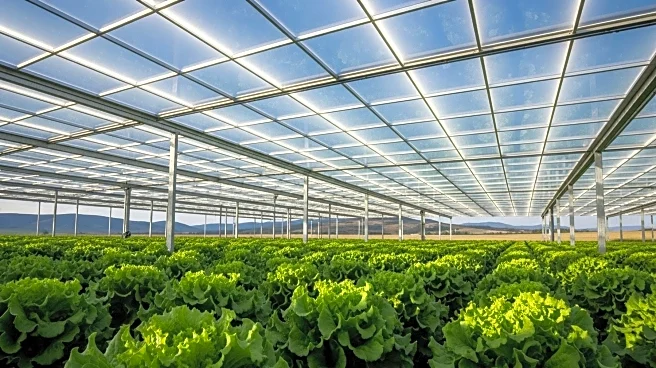What is the story about?
What's Happening?
UbiQD, a US startup, has developed a new form of solar glass that significantly increases greenhouse productivity. Field tests conducted by the University of California – Davis revealed that lettuce crops grown under this solar glass showed a 37.8% increase in biomass, larger leaf area, deeper roots, and improved nutrient concentrations. The solar glass utilizes quantum dots to manipulate light and color, enhancing photosynthesis and crop resilience. This technology could transform climate-smart agricultural practices, including vertical farming and conventional greenhouse operations.
Why It's Important?
The introduction of quantum dot solar glass represents a major advancement in sustainable agriculture. By optimizing light conditions, this technology can increase crop yields and nutritional value, supporting food security and reducing environmental impact. The potential for widespread adoption in greenhouses and vertical farms could lead to more efficient and resilient food production systems, addressing challenges posed by climate change and resource scarcity.
What's Next?
UbiQD plans to scale up the commercial use of its solar glass technology, integrating it into agricultural practices worldwide. The company is also exploring applications in thin film solar cells, aiming to enhance energy efficiency in various sectors. As the technology gains traction, it could lead to innovations in agrivoltaics, combining solar energy generation with agricultural production.
Beyond the Headlines
This development highlights the intersection of technology and agriculture, showcasing how advanced materials can drive sustainable practices. The use of quantum dots in solar glass could pave the way for new energy solutions and agricultural methods, contributing to global efforts in combating climate change.
















